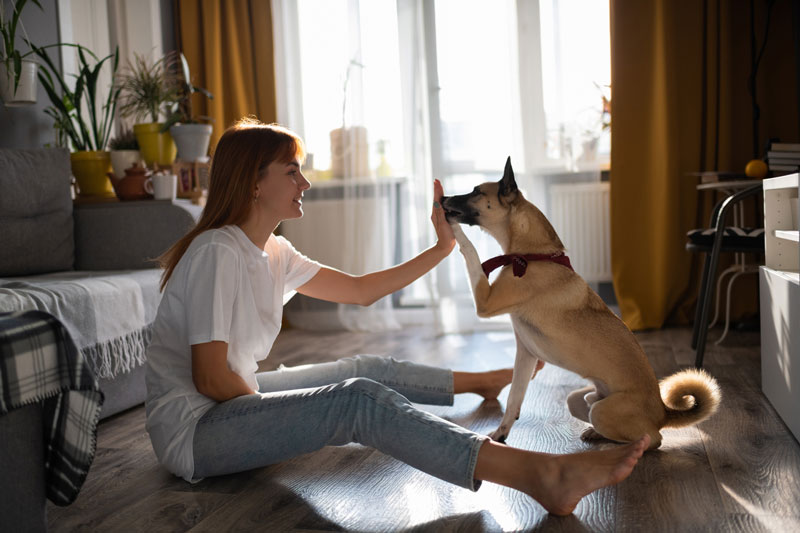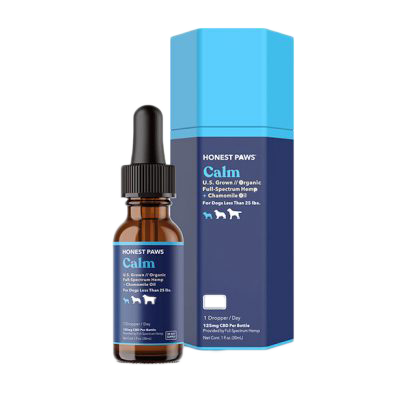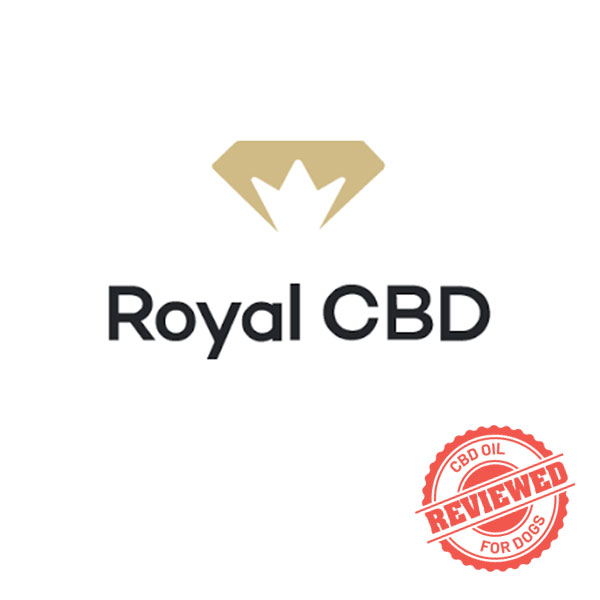CBD is proven to reduce inflammation in humans and dogs. This has led to pet owners using CBD products for common canine disorders like seizures and arthritis.
Many people also recommend CBD for anxiety in dogs, including separation anxiety.
Separation anxiety is when dogs, who may behave normally most of the time, develop hyper-attachment with an owner or another pet in their household.
When separated from that bonded person, anxious dogs will exhibit signs of panic or distress, such as destroying furniture, barking, whining, pacing, and other negative behavior.
So does CBD for dogs Help with separation anxiety? The evidence suggests that, yes, CBD can help anxious dogs.

Although not all dogs are affected by CBD, those that do react well to the hemp extract often become calmer, making them less destructive and more receptive to owner cues.
Combined with good training methods such as crating, this means that CBD is seen by many as a legitimate anti-anxiety supplement.
Product reviews from pet owners, plus studies showing CBD’s effects on anxiety in humans and dogs alike, all point towards there being good reason to try CBD with your own nervous pup.
CBD and separation anxiety – Overview
Here’s what we know about CBD’s effectiveness in treating separation anxiety in dogs. We’ve also looked at some of the most popular pet CBD products, to see whether pet owner feedback suggests they really do help dogs become less anxious.
Scroll to:
- CBD and separation anxiety – the theory
- CBD and separation anxiety – the evidence
- Does CBD actually reduce separation anxiety in dogs?
- Which CBD products work the best for separation anxiety?
- How do I give my dog CBD for separation anxiety?
- How do I know if my dog is experiencing separation anxiety?

CBD and separation anxiety – the theory
The science of CBD
CBD oil is a natural hemp extract that contains cannabinoids – active compounds that interact with a part of dogs’ bodies called the endocannabinoid system.
The endocannabinoid system helps manage homeostasis, the medical term for internal balance controlled by hormone release, inflammation, and other stress responses.
Endocannabinoid receptors are found all over dogs’ bodies. When dogs take CBD oil, cannabinoids stimulate the receptors, triggering them to reduce inflammation and induce feelings of calm.
How does this affect separation anxiety symptoms?
The theory goes that CBD can reduce the initial stress triggered during a separation anxiety attack.
This should lessen feelings of panic and behaviors such as barking or gnawing.
As a result, dogs and owners have more time to use training and routines designed to combat underlying anxiety.
Will a dog feel any different when taking CBD?
Under the influence of CBD, dogs should feel calmer, more relaxed, but not high.
Pet CBD doesn’t contain the types of cannabinoids needed to produce a mind-altering effect (there are only traces of THC in hemp products).
CBD and separation anxiety – the evidence
Scientists from Waltham Petcare Science Institute in the UK tested the effects of CBD on stressed-out pups, to see if CBD really can help dogs with separation anxiety.
They ran a CBD study on 40 anxious dogs of various breeds and ages that were separated from their owners and left alone in a room for 45 minutes. The scientists also tested the effects of CBD on dogs who felt stressed during short car rides.
Each of the dogs was fitted with a special chest monitor and smart collar to measure their anxiety levels during the stressful events. In addition, they were monitored by trained observers who completed behavior assessments, looking for telltale signs of anxiety such as whining, pacing, panting, yawning, and licking.
The scientists split the dogs into groups: some were given a four mg/kg dose of CBD and left in the room while others were driven in the car. A second set of dogs underwent the same tests while taking a placebo oil without any CBD.
When comparing the dogs who were given CBD to the placebo group, the researchers found that dogs taking CBD had lower levels of the stress hormone cortisol, and were judged to be more calm and relaxed by trained observers.
All the dogs became more anxious when separated from their owners. But, dogs in the placebo group were more “nervous,” “sad,” and “tense” compared to the baseline when left alone in the room.
The study concluded that “dogs who received CBD were rated as being significantly less stressed, sad, tense, and uncomfortable and more explorative during the separation event than dogs who received the placebo.”
So, while the dogs in the experiment still showed some signs of stress, a dose of CBD oil appeared to make them less affected by separation anxiety.
Here’s some additional clinical evidence supporting CBD’s use as an anxiety supplement:
So, does CBD actually reduce separation anxiety in dogs?
Spend some time online, and it’s easy to find dog owners talking about how CBD did or didn’t work for their pup’s separation anxiety.
We have noticed more positive reviews related to CBD and anxiety than negative ones, which is good news. But it’s important not to be swayed too much by online comments.
Plus, for every glowing recommendation or dissatisfied reviewer, there are many pet owners who did notice some change in their dog’s behavior but weren’t sure if CBD supplementation was the main reason behind it.
The answer is: probably
All of which goes to say that every dog is different, and the only real way to know if CBD will help your pooch’s separation anxiety is to try it out yourself.
The science is absolutely there, as well as plentiful reports of success in both humans and dogs alike. But there’s always the chance that your dog simply doesn’t respond to CBD, or that their condition is beyond the level at which CBD can help.
Even if CBD doesn’t end up solving a dog’s separation anxiety, it may have enough of an effect to make them more receptive to training.

Which CBD products work best for separation anxiety?
The theory and evidence for CBD as a separation anxiety treatment look good. But none of that matters if the CBD product you choose for your dog isn’t effective.
There are dozens of pet CBD products online. Many of them vary widely in price and quality, and some are basically scams.
When shopping for CBD oil for dogs, you should keep three things in mind: the hemp extract spectrum, a brand’s overall consistency, and CBD strength.
What makes a good CBD oil for dogs?
How do the most popular CBD products rate for separation anxiety?
We looked at consumer reviews for two of the most popular CBD oils for dogs with separation anxiety from Honest Paws and Charlotte’s Web.
We wanted to see how often pet owners mentioned anxiety symptoms, and whether they had positive feedback when it came using these products to improve their dog’s behavior.
This is one of the most popular CBD oils for dogs, from reliable brand Honest Paws. It’s specifically targeted toward pets with anxiety and is infused with calming chamomile.
With a high-quality, full-spectrum hemp extract, everything suggests this CBD oil should help nervous pups – but what do real pet owners think?
93% said Honest Paws reduced anxiety for their dog
85 of 232 reviews for Honest Paws Calm directly mention anxiety symptoms (we searched for words like “anxiety” “afraid” and “stress”).
Of those, 93% (79 reviews) said that their pet’s symptoms decreased after supplementing with this CBD product.
“Construction noise and the mail man have stopped bothering her and she feels safer in her crate.“
One reviewer said that their rescue dog suffered from crate anxiety, noise anxiety, and nervousness in new situations. After using Honest Paws Calm for several days in combination with training, they report that she “calmed down noticeably and looked more at ease.”

Reviewer photos

“I give it to him 20 minutes before I leave and he has completely stopped barking.“
Another reviewer specifically mentions separation anxiety, and that CBD supplementation had a clear impact. After being unhappy with how prescription medications like “Trazadone and Reconcile” affected their pup, this reviewer began supplementing with Honest Paws 20 minutes before they leave. According to them, their dog stopped barking, became more relaxed, and is able to sit on the couch while they are out of the house.
7% said Honest Paws didn’t reduce anxiety for their dog
However, 7% (6 reviews) said that their pet’s symptoms didn’t significantly change after supplementing with this CBD product.
“Great product but not strong enough for my dog’s severe anxiety“
One reviewer said that they could see some difference in the anxiety symptoms of their two-year-old German Shepherd lab mix. However, due to the severity of their anxiety, CBD wasn’t able to reduce symptoms enough to make training and behavior change possible.
“We truly noticed no difference after almost a full month of faithful use.“
Another said that, despite following a consistent dosage schedule for weeks, they observed no change in symptoms for their “very anxious” dog.
How do I give my dog CBD for separation anxiety? (Dosage instructions)
How much CBD should I give my dog for separation anxiety?
Our CBD oil for dogs dosage guide recommends starting with a low, daily dose of around 0.5 to 1 mg of CBD per pound of your dog’s bodyweight.
At this dosage, CBD may or may not have any effects during the first few days, but it’s important to make sure your dog tolerates CBD well before increasing its intake.
From there, it’s all about careful observation and owner discretion. If it seems like your dog’s anxiety symptoms are already improving, then stick with the dosage. If there’s no obvious change, then slowly being to increase the dose.
What’s the best dosage schedule?
As for dosage schedules, a lot depends upon the specifics of a dog’s separation anxiety:
- How long do symptoms last before and after separation?
- How often is a pup left alone, and for how long?
If your dog regularly experiences panic leading up to your departure, or can’t calm down when you return, then you may want to look at regular, consistent CBD supplementation, with a once or twice-daily dose.
If your dog occasionally acts out, such as when you leave unexpectedly or for an unusually long period of time, then a single dose around an hour before you leave might be a better course of action.
(You may need to start even earlier, as dogs can usually detect the fact that you are leaving well in advance.)
Combine CBD with other anxiety treatments
CBD oil for dogs almost always works better when paired with other anxiety reduction therapies.
Likewise, replacing traditional training techniques with CBD is unlikely to be as effective as combining both into one treatment plan.
In other words, CBD should never be the only thing you try when it comes to an anxious dog. Behavior modification, crate training, and desensitization are all proven ways to treat separation anxiety.
Here, CBD may help increase training uptake, reducing the effort needed for the new routines to bed-in.
- Daily CBD dose + Counter-conditioning
Dogs with milder cases of ongoing separation anxiety can be receptive to treatment with daily CBD supplementation alongside some simple counterconditioning and desensitizing measures.
Counterconditioning is a training process that starts by defining what situations provoke a pet’s negative response, then slowly builds out positive connotations for each aspect of those situations.
Research suggests four main trigger categories for canine separation anxiety:
- A need to avoid something in the home
- desire to reach something outside the home
- external noises or events, or
- boredom.
If you live alone with your dog and can’t find somebody to observe your dog’s behavior when you leave, consider investing in a webcam. That way, you can playback footage recorded during your absence and find out what exactly triggers your pup.
- Daily CBD dose + Breaking associations
Once the triggers of your dog’s separation anxiety have been identified, it’s time to break those negative associations in two ways:
- CBD supplementation to help dogs become desensitized to triggers.
- Introduction of treats, toys, or other positive stimuli to reassociate triggers.
Positive associations can be developed in different ways depending on the trigger. If it’s a certain noise that normally only occurs as you leave the house (keys jangling, doors closing), you might gradually habituate your dog to that sound at other points in the day.
Another popular method is to give your dog a lengthy puzzle or activity every time you leave. This could be a bone or a toy stuffed with food. Aim for activities that last over 20 minutes to keep your pup absorbed for a decent period of time.

How do I know if my dog has separation anxiety?
Canine separation anxiety refers to dogs that become disproportionately upset when separated from a member of their family.
Anxiety occurs when dogs hyper-attach to their owner or another pet in the household. Separation issues are almost always focused on a single person (or another animal) with which the dog has developed an unhealthy attachment.
Stress triggers
A dog’s anxiety may have one or more stress triggers related to separation. For example, a noise like a car engine starting, a certain door in the house being opened and closed, or even a time of the day when family members typically leave the home.
- Signs and symptoms of separation anxiety in dogs
Once triggered, separation anxiety can present with:
- excessive barking
- whimpering
- going to the bathroom inside
- destructive behaviors
Despite its upsetting nature, separation anxiety is by no means a rare disorder in dogs. Behind disproportionate aggression, separation disorders are often reported to be the second most common behavioral problem in dogs. However, there is no conclusive evidence for exactly why dogs develop separation anxiety, or what the pre-warning signs might be.
Previous experiences
However, we do know that dogs who live in more than one home across their lives—especially those adopted from shelters—are more prone to behavior problems related to separation issues. As such, it’s thought that separation anxiety is often a result of trauma related to the loss of an important person (or animal) in a dog’s life, as well as previous long-term confinement or isolation.
A 2001 study on separation anxiety, which included 400 pups, found that dogs from homes with only one adult human owner were over twice as likely to develop separation anxiety as dogs from homes containing multiple owners. In addition, sexually intact dogs were a third as likely to have separation anxiety as neutered dogs. Factors associated with hyper-attachment (an unhealthy obsession with a certain person or animal) were also significantly associated with separation anxiety.
New situations
Less dramatic changes can also trigger the disorder, such as a change in the family makeup, or a new routine. But other commonly held theories about separation anxiety do not hold up in studies. For example, spoiling activities, gender, or the presence of other pets in the home have not been associated with separation anxiety in a clinical setting. Likewise, it’s not clear that early separation from a mother will necessarily lead to the future development of separation anxiety.
Next: Best CBD for dog anxiety




